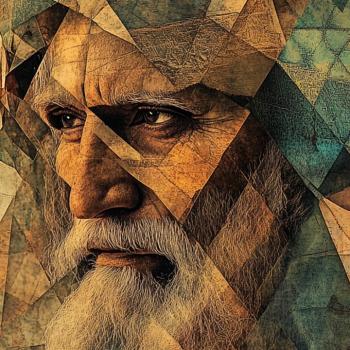The only thing I wonder is why he claims to be an evangelical. Except that he gets much more attention. If he did not claim to be evangelical, he would just be another liberal Christian. But this way, he gets to be the media's favorite evangelical. Martin Marty will invite him to the banquet.
A colleague of mine, Byron Johnson, and one of his graduate students, just published a study in which they look at whether the evangelical commitment to social conservatism is breaking down. Jim Wallis and his ilk want to claim that young people are all wising up and moving his way. So Byron Johnson and his student look at some large data sets of self-identified evangelicals.
They don't find anything of the sort. Of course, the media want evangelicals to become liberals, so they will jump on any speck of evidence that anybody produces. But the evangelical commitment on what are called the cultural issues is just as strong and just as conservative as ever.
I want to finish with two questions on other subjects. First, how do you see the rapid growth of technology shaping evangelicals and Christians in general in recent years?
People fail to appreciate the effect of really cheap and accessible travel. Witness the enormous numbers of self-appointed missionaries going abroad. Back in the days when you had to sail for six months to get there, becoming a missionary was a dramatically different thing. But if it takes four hours on an airplane, then that's an entirely different proposition.
There's also an irony in the technology issue. There's a notion amongst intellectuals that conservative religious people are hostile and uncomfortable with technology, while liberals are comfortable with it. But consider this. If you led me blindfolded into a church, and I didn't know whether it was a liberal or conservative church, then you ripped off my blindfold, I could tell you instantly whether it was a liberal or evangelical church.
Are there hymnbooks in racks on the back of the pews? If there are, it's a liberal church. Conservatives got rid of that stuff long ago, because they know we don't sing real well with our chins on our chests, and we spend too much time leafing through the hymn book. Better to project it up on a screen so that we can lift our chins and sing. It's true almost one hundred percent of the time. The notion that conservatives are Luddites is nonsense.
I pointed out twenty or thirty years ago that if you looked in conservative Christian magazines and liberal Christian magazines, there was a huge difference in the amount of technology being advertised for sale. In the conservative Christian magazines, all kinds of software and technology are being advertised. Software to do budgets, for example. In places like Christian Century, there was none. I always thought that was a little ironic.
Second, why has American evangelicalism grown so much in recent decades, while churches in Europe are largely empty? Will American evangelicalism eventually go the way of Europe?
People want to talk about the low levels of religion in Europe, but it was always thus. There were almost no rural churches in the 14th and 15th centuries, at a time when almost everybody was rural. So the question is: How could they have gone to church? The answer is: They didn't. And they faced lazy state churches the whole time.
The clergy in Germany have a labor contract that says that if fewer than five people show up, they don't have to hold services. If I were a preacher in Germany, and I got a check even if I didn't hold church, I'd hold such terrible sermons that no one would come. It's a very effective incentive system for having the church close.
Europeans have always marveled at how religious Americans are, but the reason Americans are so religious is because, in an unregulated situation, all kinds of different churches and denominations will appear, with each one appealing for support. The marketplace will shake these out, so that you will slowly evolve a bunch of pretty effective organizations. The net effect of their efforts will be a relatively high level of public religiousness. Most people will get found and get recruited.
So, no, American religion is not on its way out. It's as strong as ever. Maybe stronger.
Rodney Stark lives and writes in New Mexico, and serves as co-director for the Institute for Studies of Religion at Baylor University in Waco, Texas.





